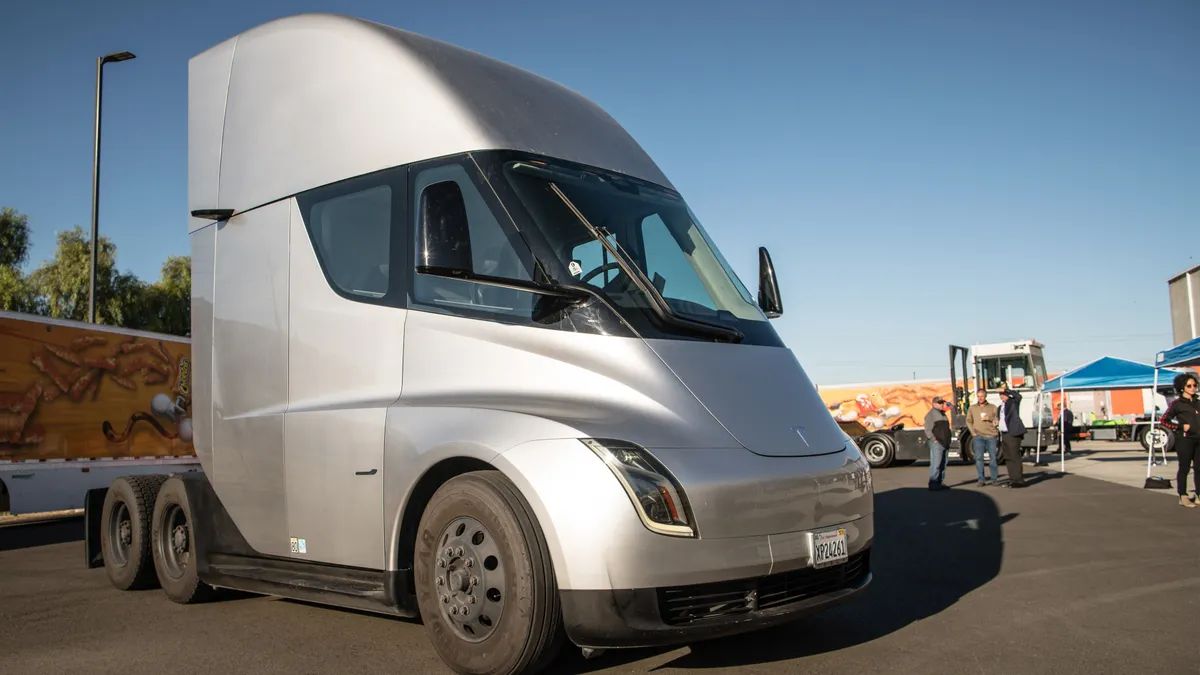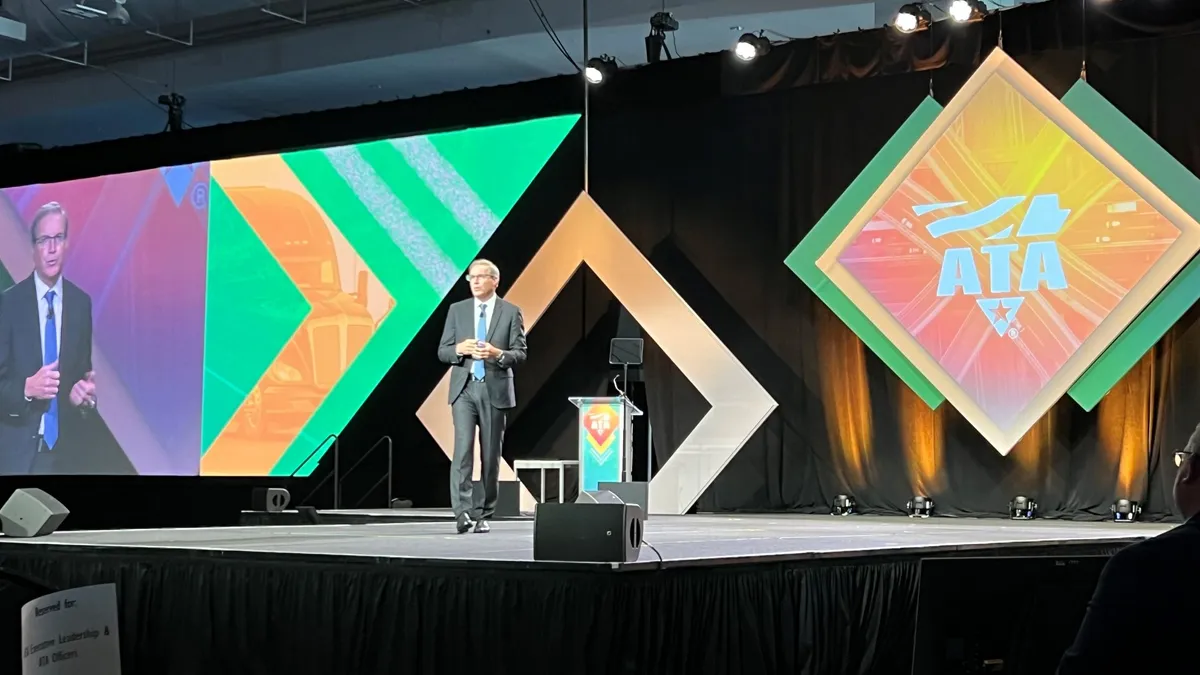Dive Brief:
- Regional trucking operations should be early adopters of electric trucks, the North American Council for Freight Efficiency (NACFE) said in a news release on Sunday.
- NACFE received a major grant on Jan. 1 from the Hewlett Foundation and the ClimateWorks Foundation to study how battery-electric vehicles will best fit into the regional haul market.
- NACFE said its three-year study will include identifying high-potential regional trucking routes; supporting the implementation of initial and future deployments outside of California; scaling best practices in infrastructure development for fleets and communities; and increasing confidence in the value of electrification.
Dive Insight:
Electric trucks are a growing part of freight movement, especially in California, but they are limited by range.
Mike Roeth, NACFE executive director, told Transport Dive on Monday that there are a "fair amount" of electric trucks deployed now, but mainly for short hauls, such as trips from ports to warehouses. The concern in the trucking industry is Class 8 trucks tend to have a daily range of 200 miles maximum, Roeth said.
Roeth said he envisions electric trucks graduating to routes of between 300 miles and 500 miles.
Truck manufacturers are working to increase range, and some states such as California are investing in the infrastructure needed for electric trucks. The use of electric trucks for drayage at the ports of Los Angeles and Long Beach is particularly useful in southern California, where smog and emissions have bedeviled the region in the past.
Charging stations and other such improvements were unveiled in April at the 2019 Advanced Clean Transportation Expo in Long Beach, California, including Penske Truck Leasing's opening of electric vehicle charging stations with 14 high-speed chargers for heavy duty trucks at four of its existing facilities in Southern California.
Major players in the industry favor battery-powered electric trucks. At the 2019 ACT Expo, Roger Nielsen, the CEO of Daimler Trucks North America, the continent's top manufacturer of Class 8 trucks, declared its future trucks would be powered by electric batteries, not diesel, hybrid or hydrogen fuel cells.
Shippers are already trying to change their fleets too.
In October 2019, Frito-Lay announced plans to convert its 500,000 square foot Modesto, California, facility into a near-zero and zero-emissions freight hub by 2021. The transition will cost $30.8 million, the bulk of which will go toward replacing diesel-powered equipment and integrating near zero and zero-emissions fleet vehicles, infrastructure and renewable energy generation and power storage capabilities on-site.
In November, Anheuser-Busch said it completed its first zero-emissions beer delivery using hydrogen-electric and electric vehicles in St. Louis. The company said it wants to cut carbon emissions 25% across its supply chain by 2025 and has already placed an order for 800 hydrogen-electric powered semi-trucks from Nikola. It is also working on a pilot project with BYD to improve the sustainability of its southern California fleet.
A change in how carriers fuel regional hauls could mean serious curbs in emissions. Roeth said 800,000 of the 1.7 million over-the-road tractors are day cabs, which are regional haulers.
Roeth declined to specify the amount of the grant. But he said the three-year effort will depend on collaboration and urged trucking fleets and manufacturers to help NACFE.
"We need people to engage with us by attending our workshops, sharing their knowledge about regional haul and/or electric trucks, or by helping fund this critical work," he said.












